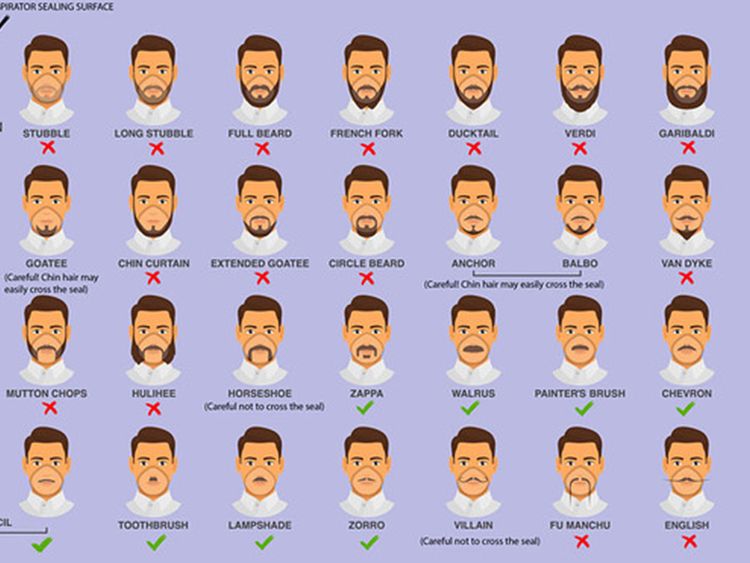Coronavirus health myths — debunking more crackpot claims
There’s no shortage of coronavirus claims, miracle cures, and outright hoaxes, but some are so outlandish that they’re sometimes entertaining. Let’s only look to the experts for credible information. 
MercuryNews.com (San Francisco, CA) reports that Amazon has pulled more than 1 million items from its digital shelves due to claims that the products could either cure or help prevent the spread of coronavirus. The New York Times reports that the cybersecurity firm Check Point said more than 4,000 coronavirus-related websites that include words like “corona” or “covid” have been registered since the beginning of the year. Of those, 3 percent were considered malicious and another 5 percent were suspicious.
GulfNews.com reports that there’s no shortage of quack claims in the United Arab Emirates. They’re busy fact-checking false health warnings and quack treatment claims.
Included:
Claim: Drinking bleach (chlorine dioxide) will cure the virus
Fact check: Chlorine dioxide (industrial bleach) kits are sold under various names but they are most often referred to as — Miracle Mineral Solution (MMS). The kits include a bottle of sodium chlorite and a bottle of citric acid. When mixed together, they make chlorine dioxide, a common industrial bleach used in the production of paper products. But many are selling the chemical solution as a cure-all for coronavirus. Bleach-based cleaners are helpful for keeping surfaces virus-free but they are NOT a cure for the coronavirus. In fact, chlorine dioxide is dangerous to human health and can cause vomiting, severe diarrhea and acute liver failure.
Verdict: False

MMS consists of chlorine dioxide, a powerful bleach that is used both on textiles and in the industrial treatment of water. It has been banned in several countries around the world for use as a medical treatment.
Claim: Shaving off facial hair will reduce chances of contracting coronavirus
Fact check: It has been widely claimed that the Centers for Disease Control and Prevention (CDC) in the US recommends people shave off facial hair to protect against the coronavirus

Contrary to claims, this infographic was not produced in relation to the current outbreak of COVID-19
From the University of Queensland UQ News:
Is hand sanitizer not as effective as soap and water?
A science-y fun fact has been circulating on Twitter, saying soap is better than alcohol at disrupting the lipid layer that surrounds viral particles.
In fact, both soap and alcohol break virus particles apart, but in different ways. Hand washing also works because it washes viral particles off our hands.
Whether you use alcohol or soap isn’t really important – making sure you wash your hand often and thoroughly definitely is.
Do you wash your hands correctly? I didn’t until I watched this video!
Can coronavirus spread through food?
That depends on if someone coughs on your food, or shares your spoon.
Coronavirus spreads via droplet transmission. When someone coughs or sneezes without a mask, droplets of saliva and mucus can fall within a metre or two of the sick person. Most transmission occurs when these droplets make their way into your mouth, nose, or eyes. That’s why hand hygiene and avoiding touching your face are so important.
If you are near someone with coronavirus and they cough over your food, it could potentially make you sick. Sharing cutlery or glasses with people with coronavirus could pass on the infection. However, you are unlikely to catch anything from the avocado you pick out of a basket at Woolies as a consolation prize after missing out on toilet paper.
Will sipping water every 15 minutes prevent a coronavirus infection?
Snopes.com reports that inaccurate messages about the coronavirus “are spreading and mutating online.” One of the most virulent ones is “advice” that asserts regular sips of water can prevent the coronavirus, which causes the COVID-19 disease, from entering the respiratory system.
It is true that COVID-19 infects the respiratory system by directly entering the body through the mouth or nose. This fact is central to both the Centers for Disease Control and Prevention (CDC) and World Health Organization (WHO) recommendations to wash hands frequently and avoid touching your face. The assertion in this viral “advice,” however, is that if the virus were already in your mouth, water would help wash it away. Though medical officials recommend drinking water during any infection, no evidence exists to support the notion that sipping water prevents a virus from infecting the respiratory system.
Drinking more water, while good for your overall health, will not keep anyone from catching the coronavirus, according to Dr. William Schaffner, an infectious diseases expert at Vanderbilt University. Schaffner told The Associated Press, “We always caution anyone healthy and people who are sick to keep up fluid intake and keep mucus membranes moist.” He also said: “It makes you feel better; there is no clear indication that it directly protects you against complications.”
Dr. Susan Wootton, an infectious disease expert at McGovern Medical School at UTHealth, agreed with that assessment, telling KHOU that no data exist to support the claim that sipping water will prevent infection by transporting it to the stomach.
Because no evidence supports the claim, we rank the notion that sipping water regularly prevents COVID-19 infection as “False.”

Drinking water prevents dehydration yes, but will not prevent anyone from catching coronavirus.
Is bleach is best for cleaning your mobile phone?
The Boston Globe advises don’t use just any random household cleaner to disinfect your smartphone.
Mobile phones are made from all sorts of materials, and if you use the wrong chemical you could damage your phone. If you’re an iPhone user, Apple suggests using a 70 percent isopropyl alcohol wipe or Clorox disinfecting wipes as a disinfectant. The CDC recommends putting on a pair of disposable gloves first.
“Using a 70 percent isopropyl alcohol wipe or Clorox Disinfecting Wipes, you may gently wipe the exterior surfaces of your iPhone,” Apple’s website states. “Don’t use bleach. Avoid getting moisture in any openings, and don’t submerge your iPhone in any cleaning agents.”
Aerosol sprays, bleaches, or abrasives should not be used on your phone. Window cleaners and other household cleaners are also off-limits. Avoid using abrasive cloths, towels, and paper towels, and don’t go overboard, because excessive wiping can also cause damage.“Apple products are made with a variety of materials, and each material might have specific cleaning requirements,” the website states. For specific tips on cleaning different iPhone models, visit Apple’s website.Cleaning your phone is a particularly important step as new coronavirus cases crop up every day — a new study showed that the virus can live on plastic, of which many phones and phone cases are made, for up to three days, STAT news reported.

Carefully clean your phones with disinfecting wipes or 70% isopropyl alcohol
Stay informed and carry on.
____________________________________
Food, Nutrition, and Your Health columnist Susan Burke March moved to Cuenca after 35 years as a Registered and Licensed Dietitian and Certified Diabetes Educator in the United States. She currently serves as the Country Representative from Ecuador for the Academy of Nutrition and Dietetics.
Susan helps people attain better weight and health, and reduce the risk of heart disease, diabetes, and other conditions that can be improved with smart lifestyle modifications. Contact her at SusantheDietitian@gmail.com





















